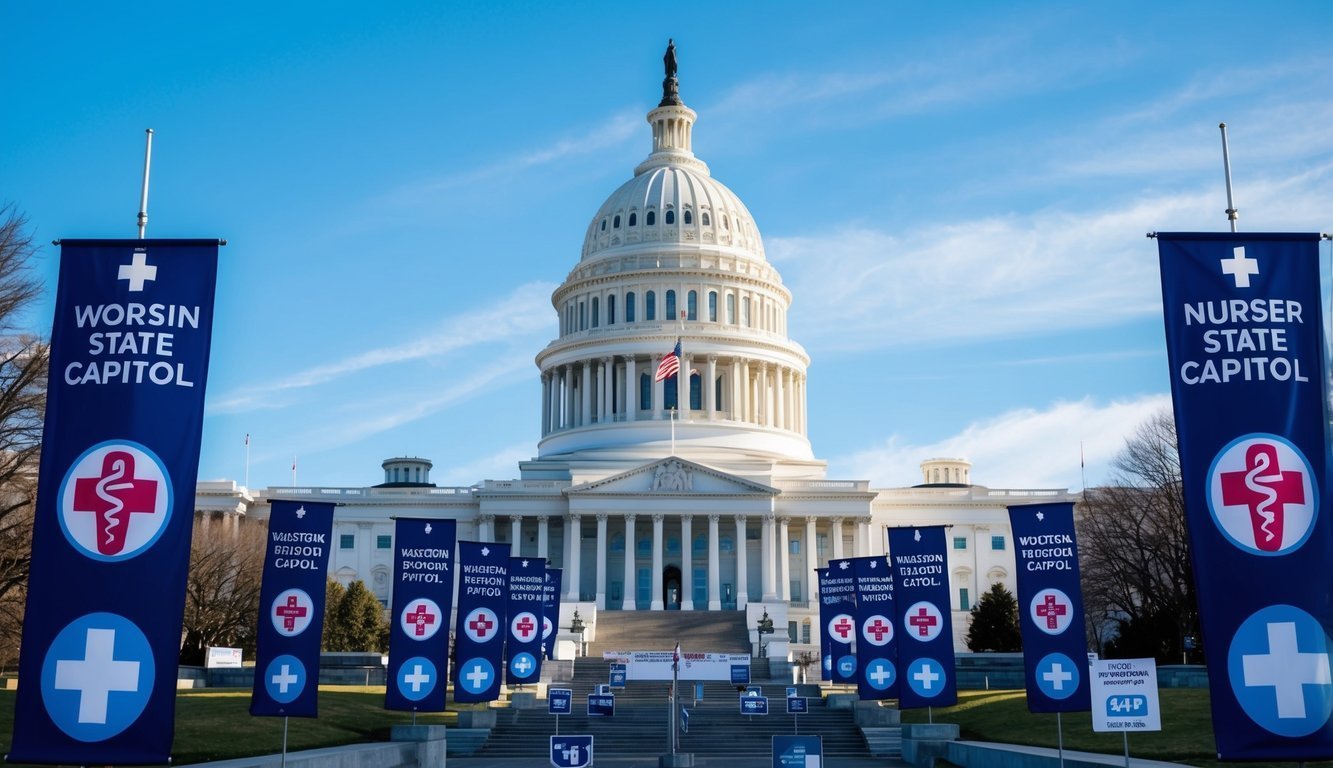Nurses Advocate for Change at the 2025 WSNA Nurse Lobby Day
On February 4, 2025, nurses from across Washington state converged on Olympia for the 2025 WSNA Nurse Lobby Day, a pivotal event highlighting the intersection of clinical expertise and legislative advocacy.
Organized by the Washington State Nurses Association (WSNA), this annual campaign brought nurses face-to-face with lawmakers to address urgent challenges facing the profession and patient care.
The event underscored how post-pandemic workforce strain, healthcare equity disparities, and evolving clinical standards demand collaborative solutions between caregivers and policymakers.
Putting Advocacy into Action
Over 85 nurses braved winter travel disruptions to attend, securing nearly 100 meetings with legislative offices.
Their agenda focused on three critical issues:
- Addressing chronic staffing shortages: Many facilities still grapple with under-staffing, exacerbated by high turnover. Advocates emphasized integrating flexible staffing models—like floating pools and telehealth-enabled roles—to enhance crisis preparedness.
- Prioritizing nurse well-being: Recurring themes included mandated safe staffing ratios, workplace violence prevention protocols, and expanded mental health support programs, mirroring CMS’ recent emphasis on health equity in long-term care.
- Broadening healthcare access: Nurses championed bills strengthening school health services and expanding para-professional roles in underserved areas, aligning with Johns Hopkins Nursing’s push for community-based care models.
The event’s participants emphasized the dual role of nurses as both caregivers and systemic change-makers. “Advocacy isn’t just about legislation—it’s about amplifying the invisible work nurses do every day,” said one WSNA member, echoing growing calls for nurses to redefine their role in shaping public health systems.
What’s Next Beyond Olympia
While Lobby Day itself has concluded, its impact feeds into broader shifts in healthcare policy.
For instance, CMS’ February 2025 guidelines for long-term care emphasize resident-centered care and infection control reforms, directly reflecting nurses’ advocacy for transparency and accountability.
Simultaneously, Johns Hopkins Nursing’s 2025 forecasts highlight trends like AI-driven personalized interventions and telehealth-integrated education, signaling how nurses can integrate emerging technologies into advocacy efforts.
The recurring takeaway is that modern nursing requires bridging bedside practice and systemic reform.
As one WSNA leader noted, “Every agency visit, every piece of legislation, is a chance to say, ‘We see you, we hear you, we’re building systems that honor your humanity.’” In the years ahead, nurses will need to sustain this momentum, ensuring that advocacy becomes a cornerstone of their professional identity—both in healthcare settings and legislative halls.
For updates on WSNA’s ongoing initiatives and resources for nurse advocates, visit their newsletter for actionable steps and legislative tracking tools.
“`
